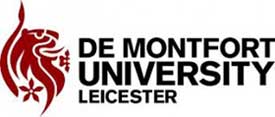About Economics And International Relations BA (hons) in De Montfort University
This course combines an interdisciplinary approach to the study of economics and international relations. The recent coronavirus crisis has demonstrated how the world’s economy is formed of a delicate balance of interconnected countries and their structures, theories and policies – which can have such a profound impact on millions of lives around the world.
During your studies you will develop a strong understanding of macro and microeconomics, in order to understand the way economists approach and analyse societal problems at the national level, how markets work, and the application of elasticity in the pricing decision of firms.
We build upon the future by learning from the past, so with us you will discover the historical evolution of international relations theory. From realist and liberal schools to the challenge of Marxist-influenced perspectives, you will explore how theories that draw on philosophies and ideologies shed new light on the discipline.
In your final year you will then have the opportunity to undertake independent study in an area of interest within economics or international relations.
Key features
- Broaden your expertise by developing transferable skills such as commercial awareness, communication, team working, independent research and critical analysis.
- DMU is recognised as a Jean Monnet Centre of Excellence, meaning that it serves as a focal point of knowledge and skills on European Union affairs.
- Participate in real debates such as Congress to Campus, attend conferences and learn from guest speakers. Recently two former congressmen came to DMU to discuss President Trump and contemporary US politics. These visits will give you a valuable and informed first hand insight into contemporary politics.
- Expand your horizons with international travel linked to your course through DMU Global. Previous trip destinations have included New York, Berlin, Greece, Beijing and Copenhagen. As part of the #JoinTogether campaign, students visited the United Nations headquarters in New York to pitch their ideas to improve local communities.
- Our DMU Works team will help you gain sought-after employment skills through placement opportunities with local, national and global companies, previous examples include IBM, Vauxhall, Walt Disney, the NHS and the Government Economic Service.
- Our graduates have progressed onto careers with leading companies such as Deutsche Bank, KPMG, PwC and Revenue Management Analyst at TNT.
Entry criteria
- A typical offer is 112 UCAS points. You need to study at least two subjects at A Level or equivalent (eg BTEC)
- Five GCSEs at grades A–C including English Language and Maths
-
Pass Access with 30 Level 3 credits at Merit (or equivalent)
English (Language or Literature) and Maths GCSE required as separate qualifications at grade C
We will normally require students to have had a break from full time education before undertaking the Access course
- International Baccalaureate: 26+ Points
English language
If English is not your first language, an IELTS core of 6.0 (including a minimum of 5.5 in each component) or equivalent is normally required.
De Montfort University Highlights
| Type of Institution |
Public |
| Campus Setting |
Urban |
| Endowment |
£1.17 million |
| Number of Campuses |
4 faculties |
| Number/Percentage of International Students |
23205 |
| Total number of Professors |
3240 |
| Student Satisfaction Rate |
86% |
| Graduate Job Rate |
97.3% |
| Number of Residence Vacancy |
Around 3000 |
| International fee |
Undergraduates- £13240 (annual) Postgraduates- £15950 (annual) |
| Number of Academic Programs |
UG, PG, Part time, distance, blended |
| Mode of Program |
Full time, distance and online |
| Average Graduate Salary |
19800 pounds a year |
De Montfort University The tuition fee (In GBP) for various programs is tabulated below:De Montfort University Average Cost
| Field of Study |
Avg.Fees |
| Art, Design and Humanities: |
£13,750 |
| Business and Law |
£13,750-£14,550 |
| Media |
£13,750 - £14,250 |
| Engineering |
£14,250 |
| Computing |
£14,250 |
| Health and Life Sciences |
£13,250 - £14,250 |
| Nursing BSc |
£14,950 |
De Montfort University The Average Tuition Fees and Other Expenses
| Expenses |
Estimated cost in pounds |
| Undergraduate tuition fee |
13,250- 14950 |
| Postgraduate tuition fee |
13600-15,900 |
| On campus accommodation |
5,000-6040 |
| Average cost of living |
97-110 per week |
DMU International Scholarship up to 1500 pounds
- TEF Gold Outstanding Alumni Scholarship up to 3000 pounds
- Leicester Castle Business School Scholarships:
- Global MBA Scholarship £3,000 - £5,000
- Full Postgraduate Scholarship
- LGBTQ + Allies Scholarship-two fully funded post graduate taught scholarship packages including full fee weaver and maintenance bursary.
- Vice Chancellor's Sports Scholarship- three different scholarship packages are available with eligible students being awarded up to 6000 pounds of support.
